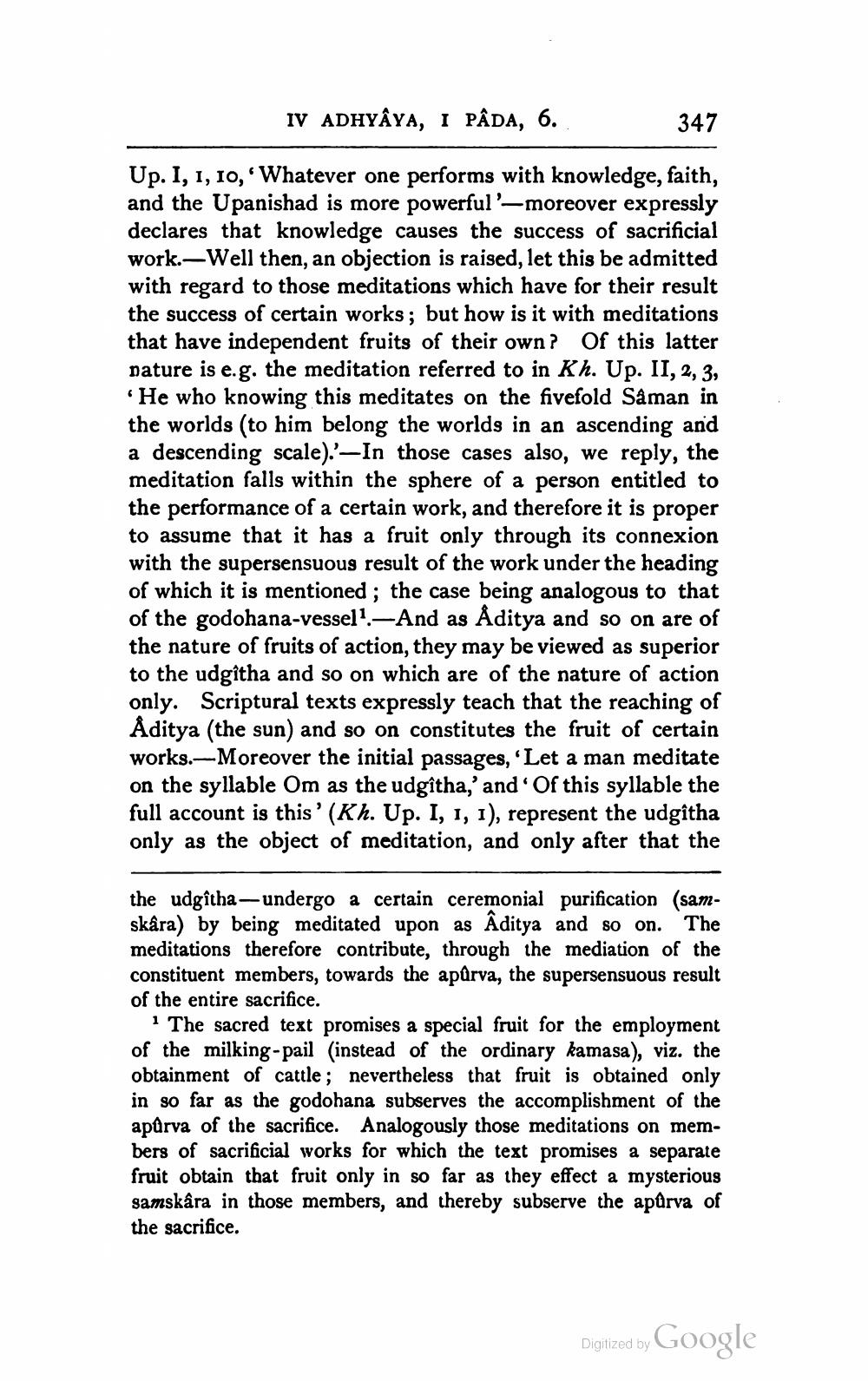________________
IV ADHYÂYA, I PÂDA, 6.
347
Up. I, 1, 10, 'Whatever one performs with knowledge, faith, and the Upanishad is more powerful'-moreover expressly declares that knowledge causes the success of sacrificial work.–Well then, an objection is raised, let this be admitted with regard to those meditations which have for their result the success of certain works; but how is it with meditations that have independent fruits of their own? Of this latter nature is e.g. the meditation referred to in Kh. Up. II, 2, 3,
He who knowing this meditates on the fivefold Saman in the worlds (to him belong the worlds in an ascending and a descending scale).'—In those cases also, we reply, the meditation falls within the sphere of a person entitled to the performance of a certain work, and therefore it is proper to assume that it has a fruit only through its connexion with the supersensuous result of the work under the heading of which it is mentioned ; the case being analogous to that of the godohana-vessel'.-And as Aditya and so on are of the nature of fruits of action, they may be viewed as superior to the udgitha and so on which are of the nature of action only. Scriptural texts expressly teach that the reaching of Åditya (the sun) and so on constitutes the fruit of certain works.-Moreover the initial passages, Let a man meditate on the syllable Om as the udgîtha,' and 'Of this syllable the full account is this' (Kh. Up. I, 1, 1), represent the udgitha only as the object of meditation, and only after that the
the udgîtha-undergo a certain ceremonial purification (samskâra) by being meditated upon as Âditya and so on. The meditations therefore contribute, through the mediation of the constituent members, towards the apûrva, the supersensuous result of the entire sacrifice.
1 The sacred text promises a special fruit for the employment of the milking-pail (instead of the ordinary kamasa), viz. the obtainment of cattle; nevertheless that fruit is obtained only in so far as the godohana subserves the accomplishment of the apūrva of the sacrifice. Analogously those meditations on members of sacrificial works for which the text promises a separate fruit obtain that fruit only in so far as they effect a mysterious samskâra in those members, and thereby subserve the apůrva of the sacrifice.
Digitized by
Digized by Google




